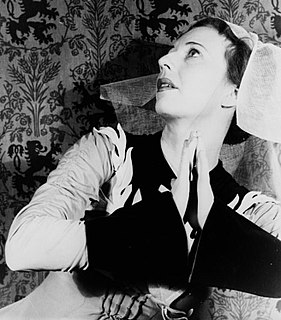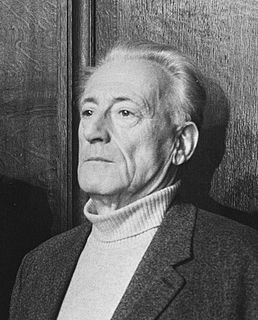A Quote by Thomas Hobbes
Leisure is the mother of philosophy; and commonwealth, the mother of peace and leisure.
Quote Topics
Related Quotes
Leisure, the highest happiness upon earth, is seldom enjoyed with perfect satisfaction, except in solitude. Indolence and indifference do not always afford leisure; for true leisure is frequently found in that interval of relaxation which divides a painful duty from an agreeable recreation; a toilsome business from the more agreeable occupations of literature and philosophy.
What have we got here in America that we believe we cannot live without? We have the most varied and imaginative bathrooms in the world, we have kitchens with the most gimmicks, we have houses with every possible electrical gadget to save ourselves all kinds of trouble - all so that we can have leisure. Leisure, leisure, leisure! So that we don't go mad in the leisure, we have color TV. So that there will never, never, be a moment of silence, we have radio and Muzak. We can't stand silence, because silence includes thinking. And if we thought, we would have to face ourselves.
Action is the music of our life. Like music, it starts from a pause of leisure, a silence of activity which our initiative attacks; then it develops according to its inner logic, passes its climax, seeks its cadence, ends, and restores silence, leisure again. Action and leisure are thus interdependent; echoing and recalling each other, so that action enlivens leisure with its memories and anticipations, and leisure expands and raises action beyond its mere immediate self and gives it a permanent meaning.
Society of leisure perhaps? Indeed, the most remarkable aspect of the transition we are living through is not so much the passage from want to affluence as the passage from labour to leisure. Leisure contains the future, it is the new horizon. The prospect then is one of unremitting labor to bequeath to future generations a chance of founding a society of leisure that will overcome the demands and compulsions of productive labor so that time may be devoted to creative activities or simply to pleasure and happiness.
As Western nations became more prosperous, leisure, which had been put off for several centuries in favor of the pursuit of property, the means to leisure, finally began to be of primary concern. But, in the meantime, any notion of the serious life of leisure, as well as men's taste and capacity to live it, had disappeared.
India was the motherland of our race, and Sanskrit the mother of Europe's languages: she was the mother of our philosophy; mother, through the Arabs, of much of our mathematics; mother, through the Buddha, of the ideals embodied in Christianity; mother, through the village community, of self-government and democracy. Mother India is in many ways the mother of us all.
And this activity alone would seem to be loved for its own sake; for nothing arises from it apart from the contemplating, while from practical activities we gain more or less apart from the action. And happiness is thought to depend on leisure; for we are busy that we may have leisure, and make war that we may live in peace.




































